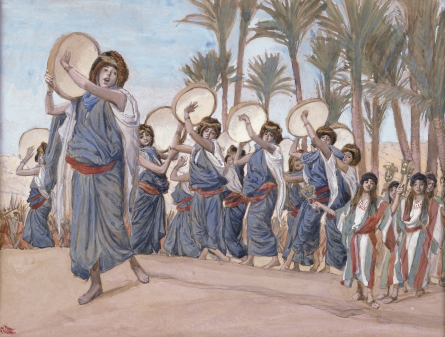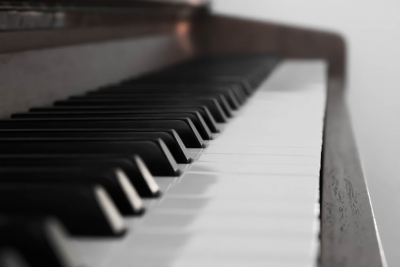A new mini-series on the spiritual significance of music.
On 18 February, in the immediate aftermath of the Florida school shooting that took 17 lives, Hawaiian Calvary Chapel pastor JD Farag bravely drew people’s attention to the two common denominators in mass shootings committed by teenagers in the USA: drugs and satanic music.1
The unbelieving world is quick to scoff when connections are made between video games and real-world violence – and it’s the same with music. Of course, direct causal connections are difficult to establish; no mass murderer could plausibly get away with pleading ‘The music made me do it!’ in a court of law.
But on the other hand, this doesn’t mean that the emotional, psychological and spiritual power of music should just be ignored. Music has an extraordinary capacity to affect people, which can be turned for good or for evil.
Musical by Design
While tastes obviously vary and not everyone is gifted with the genius of Mozart or Beethoven, we are all created with an innate capacity to enjoy music. Our brains and bodies are designed to appreciate it and respond to it – whether by humming, singing, dancing or playing an instrument.2
Science affirms that music has an extraordinary capacity to affect our minds, emotions and spirits, whether to uplift or soothe, to express grief or joy. Studies have shown that the right music at the right time can increase creativity and learning ability, reduce stress, lift one’s mood, help both emotional and physical healing and better one’s interpersonal skills.
“Music is the universal language of mankind.” ~ Henry Wadsworth Longfellow
Medics, psychologists and therapists will tell you that music can literally work miracles – helping in therapy for the disabled, in treatment for mental illness, and in ‘waking up’ parts of the brain in dementia patients that were previously thought to be defunct.3
Scientifically speaking, our brains, hearts and bodies are designed to sync in with the music we hear and respond accordingly. That’s why up-beat music boosts our energy levels, while down-beat music soothes and relaxes. We tune into what we hear and it affects us – whether we notice it or not. This applies to the mind and the body – and also to the soul.
Gifted Music
We shouldn’t be surprised at this, for the Bible shows us that music is a divine and innately spiritual gift: a heavenly gift given to humankind by God as an expression of His creativity, with intention that it be used for His glory and our blessing.
 The Songs of Joy, by James Jacques Joseph TissotMusic is recorded in Scripture as being a blessed part of family and community life, helping give expression to both merry-making and mourning (e.g. Isa 16:10; Luke 15:25; Matt 9:23). The symbolic and evocative power of music was designed for communal good, accompanying important ceremonies such as coronations, feasts and dedications (e.g. 1 Kings 1:40; Matt 26:30; Neh 12:27; Ezra 3).
The Songs of Joy, by James Jacques Joseph TissotMusic is recorded in Scripture as being a blessed part of family and community life, helping give expression to both merry-making and mourning (e.g. Isa 16:10; Luke 15:25; Matt 9:23). The symbolic and evocative power of music was designed for communal good, accompanying important ceremonies such as coronations, feasts and dedications (e.g. 1 Kings 1:40; Matt 26:30; Neh 12:27; Ezra 3).
Music has also proven a powerful weapon in warfare (e.g. 1 Cor 14:8; Neh 4:20), helping to win important biblical victories (e.g. Josh 6; Jud 7:16-22).
After victory, spontaneous songs were often poured out in celebration (e.g. Ex 15; Jud 5, 11:34; 1 Sam 18), which draws our attention to the most important purpose for music: to help express worship of God (e.g. 1 Chron 6:31-32, 25:6-7; Psalms; Eph 5:19; James 5:13; Col 3:16) and commemorate His faithfulness (e.g. Deut 32; Ps 90). The Lord is even recorded in Scripture as giving us songs to sing (Ps 40:3; Job 35:10).
“Music is an outburst of the soul.” ~ Frederick Delius
It is no wonder, given all this, that Christianity has for centuries been known as ‘the singing faith’. God clearly loves music – and has designed us to enjoy musical expression as part of our adoration and praise, and as a way of articulating and strengthening our hope.
Turned to Idolatry
However, just like all of God’s good gifts, music can also be turned for ungodly ends. Both Amos and Isaiah recorded the complacent, self-satisfied use of music by the rich and powerful in Israel (e.g. Amos 6:1-7; Isa 5:12). The Prophet Daniel wrote of how the Babylonian king Nebuchadnezzar used all manner of musical instruments to call the people to idolatry (Dan 3:5-7).
Through the ages, music has been used to torture as well as to entertain, to depress as well as to uplift, to ignite rebellion as well as to soothe. It has become the soundtrack to pagan ritual, being employed by mediums to enter trances, by shamans to enter the spirit realm, and by new age practitioners to facilitate meditation. It has almost always accompanied drunken revelry and sexual seduction, and has featured strongly in genocidal dictatorships (e.g. Hitler’s Third Reich, Stalin’s Russia, Communist China).
Sadly, this corruption of such a wonderful, Godly gift was only to be expected. satan himself has a close association with music (some assert that he used to be chief worship leader in Heaven, citing Ezekiel 28:12-15) and, as the prince of the power of the air (Eph 2:2), has temporary dominion over all the unbelieving world – including its musical activity. Desiring the worship of all, of course he will be looking to use the power of music in order to garner it.
Power, Spirituality, Community
The upshot of this is that music has, from one end of time to the other, been a key battleground for the heart and soul of mankind.
This is partly because the composing, performing and imbibing of music are all potentially powerful acts – not just physically and psychologically, but also spiritually. Music springs forth from and sinks deep into the soul, and so, knowingly or not, it is an expression of worship. At each stage those involved can choose to commit their activity to God, or to idols.
It is also because music is, for the most part, a communal phenomenon. Whether musicians playing with and learning from one another, fans enjoying concerts, or dancers taking to the dance-floor, music is often a shared experience.
This gains power the more people are involved – think of the stirring anthems of the Last Night of the Proms, or the weighty hymns of football crowds, or of thousands at the Olympics joining in with the national anthem. At these times, music is a deeply moving – and often positive - expression of community togetherness.
Because music is a communal endeavour, it helps to define and express culture (this is even more the case today with mass media and the internet exporting ‘pop’ music to millions every second). And because music is deeply powerful and spiritual, popular music trends always reflect the spirit of the age.
“Who hears music, feels his solitude peopled at once.” ~ Robert Browning
In other words, shared trends in music say something about the spiritual health and direction of a society. They form the collective cry of souls – whether glorifying God, searching for meaning, indulging in degeneracy, or pursuing a satanic agenda.
Next week, we will see to how this applies to the field of Western popular music.
References
1 Click here to watch Pastor Farag's full sermon.
2 Music is one of the only activities that is processed using every single part of the brain, and the auditory nervous system is incredibly well-connected to the rest of the body. Playing an instrument requires muscle movements and nervous control that are unique to humankind - no other species is so equipped.
3 E.g. read more here.

